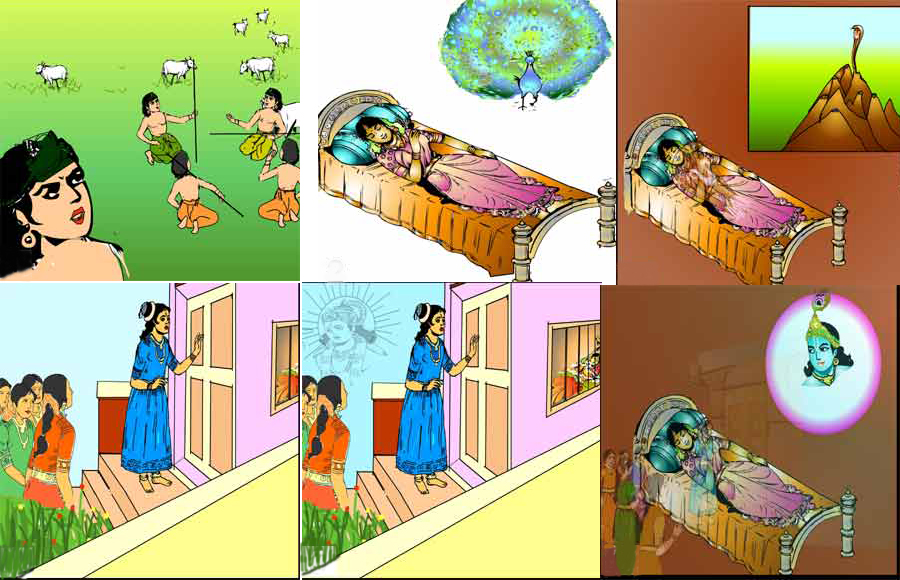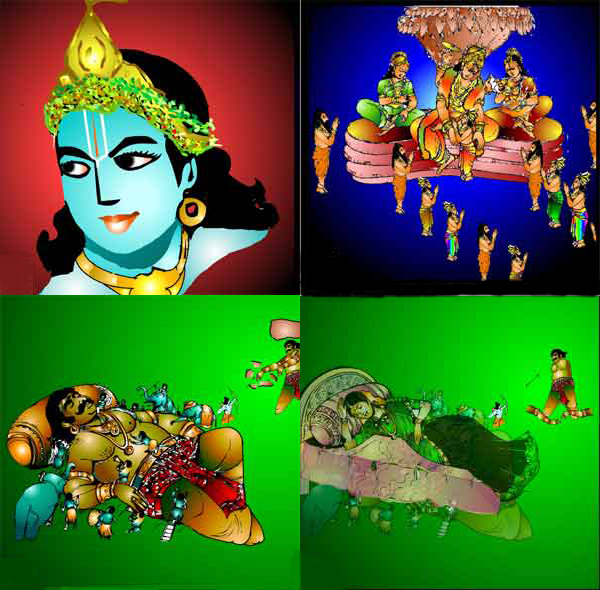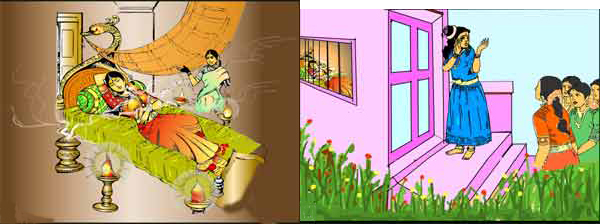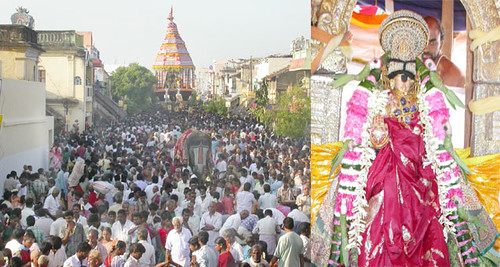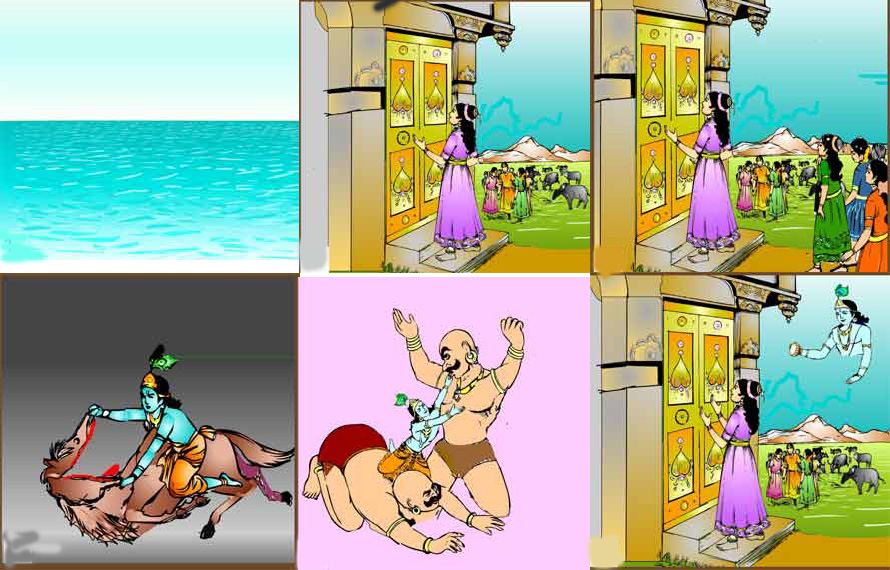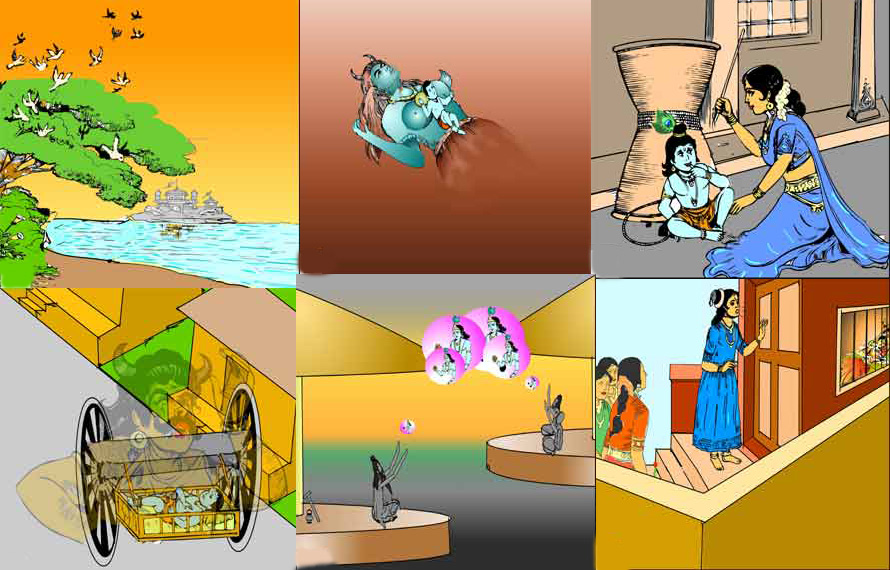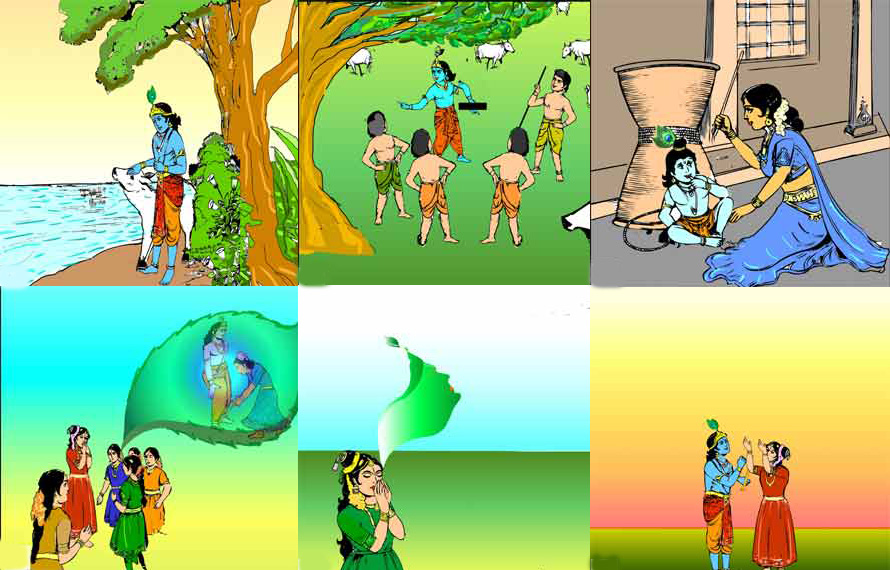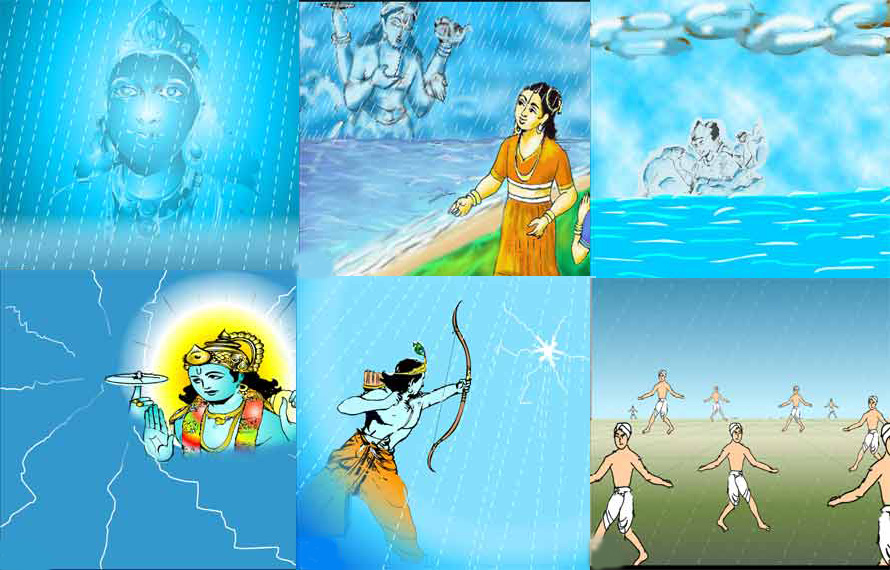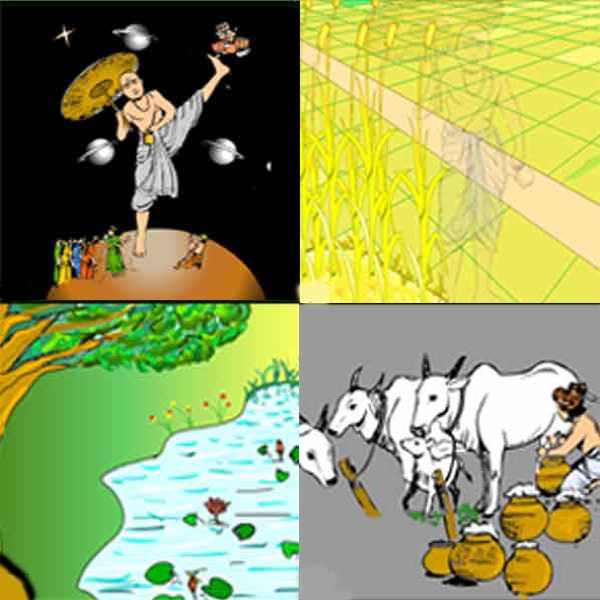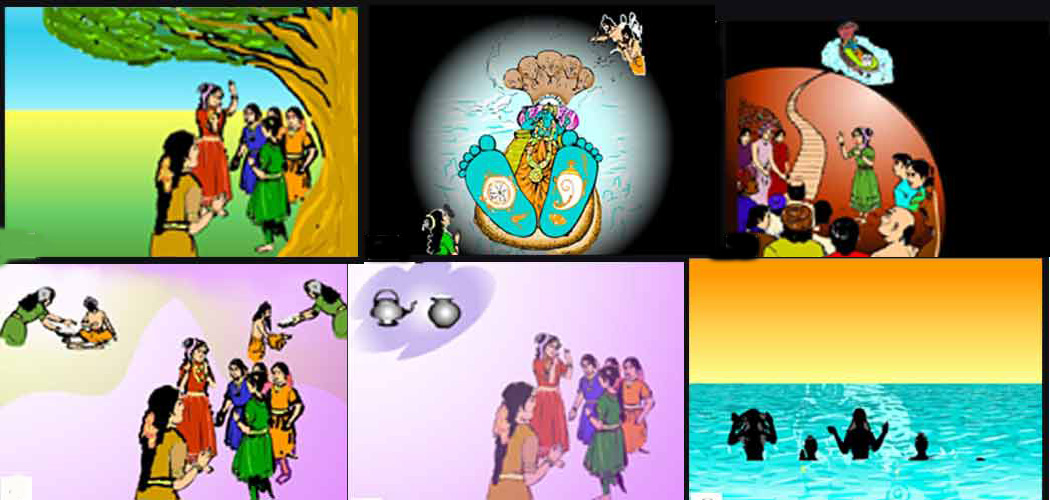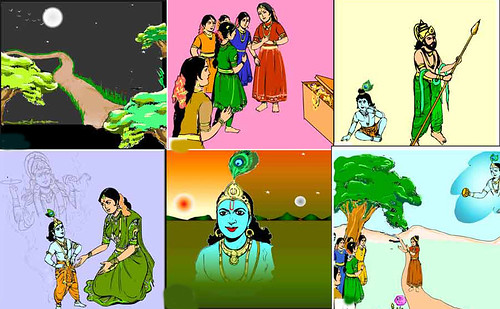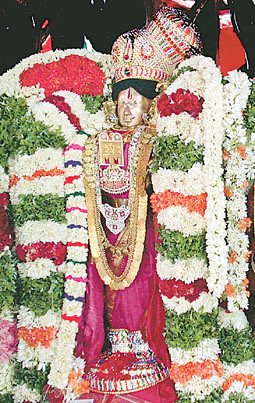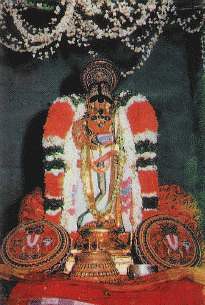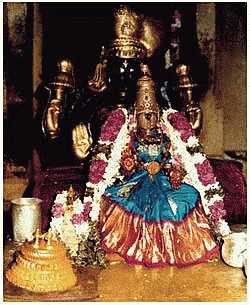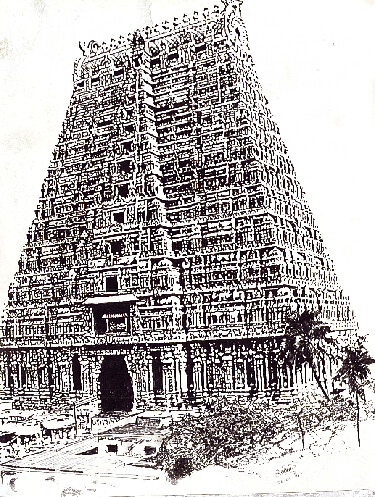திருப்பாவை - 16 (நாயக னாய்நின்ற)
நாயக னாய்நின்ற நந்தகோபனுடைய
கோயில்காப் பானே! கொடித்தோன்றும் தோரண
வாயில்காப் பானே! மணிக்கதவம் தாள்திறவாய்;
ஆயர்சிறுமிய ரோமுக்கு அறைபறை
மாயன் மணிவண்ணன் நென்னலே வாய்நேர்ந்தான்;
தூயோமாய் வந்தோம் துயிலெழப் பாடுவான்;
வாயால் முன்னமுன்னம் மாற்றாதே அம்மா! நீ
நேய நிலைக்கதவம் நீக்கேலோ ரெம்பாவாய்.
Explanation
You, the guard (kaappaan) of the temple (kOyil) of the Lord who stood (ninRa) as our savior (naayagan)! the guard (kaappaan) of the arched ornamented (thOraNa) door (vaayil) decorated (thOnrum) by garlands (kodi). Please open (thiRavaay) the latch (thaaL) of the jewelled (maNi) door (kadhavam). The mystic (maayan) Lord (maNi vaNNan) has given his word (vaay nErndhaan), yesterday (nenne) itself, to the children (siRumi) of aayarpaadi (aayar), that he would give them, the drum (paRai) used for beating (aRai) during the period of 'paavai nOnbu'. We have come (vandhOm) fresh and clean (thooya) to sing (paaduvaan) in order to wake him (thuyil ezha). Ah (amma)! First of all
(munnam munnam), you (nee) remove (open neekku), the barrier (nilai kadhavam) without any denying (maatraadhE) or discussing (vaayaal).
Purport
You, the sentry guarding the temple of our Lord Nandagopa! And you sentinel at the inner gate ornamented with flags and festoons! Please open the latch of the gem-studded door! For us the cowherd girls, our mysterious and radiant Lord Krishna promised yesterday itself to give us the heralding drum. We have all come here, with a pure mind, to wake him up with songs. Please therefore, open the heavy doors and let us in.
More Insight
Thus in ten pasurams Andal woke up girls of differing natures and thereby all the girls of Gokula were woken up and they all proceed to Sri Nandagopan's mansion and request the door keeper to let them in.
Cowherd colonies in those days may have contained only huts and Nanda's mansion may be a big hut, without a doorkeeper. And all this may be Andal's fertile imagination. But what she is doing is to tell us how one should enter a temple in Archavatara, and worship the Lord. Sri PARASARA BHATTAR in his SRI RANGARAJA STAVA lays down the procedure for temple entry based on this stanza. The door keepers are really our Acharyas. In our daily pooja we open the door of our 'koyil azhwar' (the box where the home idol is kept) by reciting the Acharya Parampara and finally this verse without fail.
TUYOMAAY VANDOM - we have come with purity. What is the purity meant here ? Not the usual physical or even mental purity. The physical purity of cowherds is well known, say the commentators. The purity referred to here is the fact that they have come to do service to the Lord WITHOUT ASKING ANYTHING IN RETURN. Kainkarya itself is the end (Swayam Purushaartha) and is not the means to an end. This point should be ever fixed in the heart of a Sri Vaishnava.
Click title to hear the song by Sudha Raghunathan (Ragam: Mohana, Talam: Adi)
